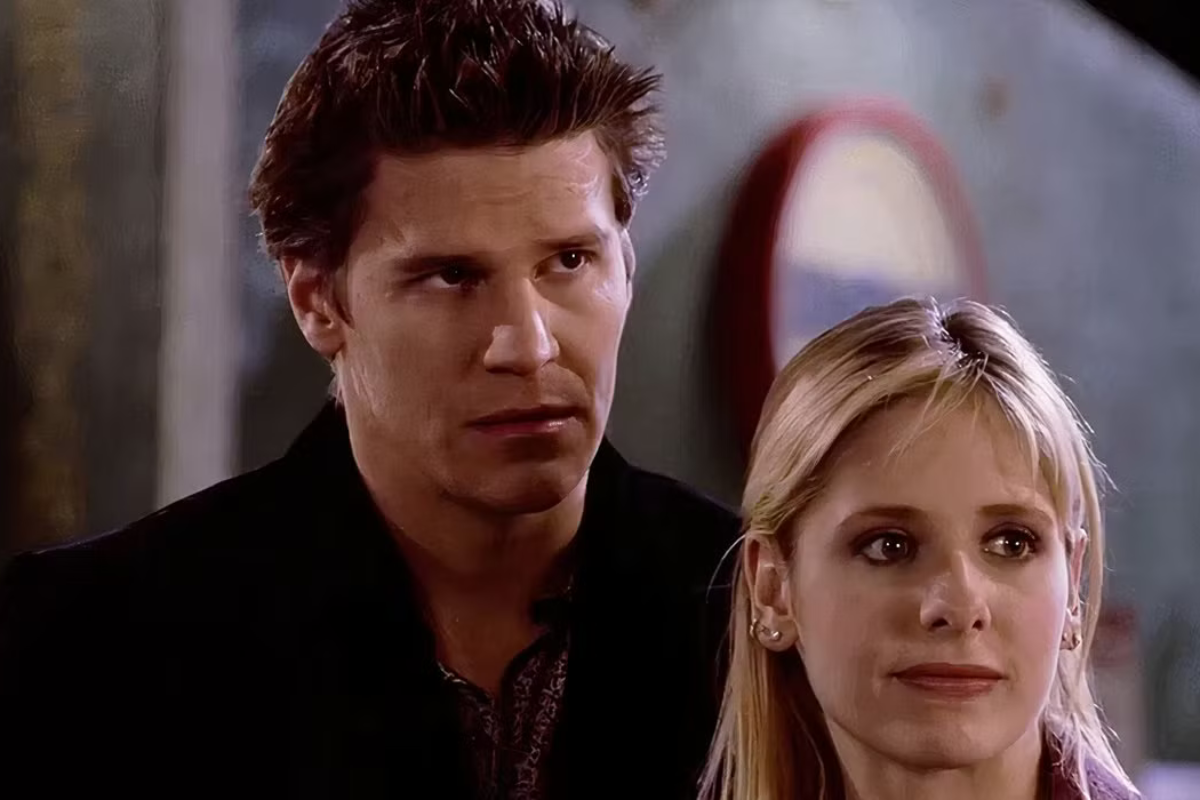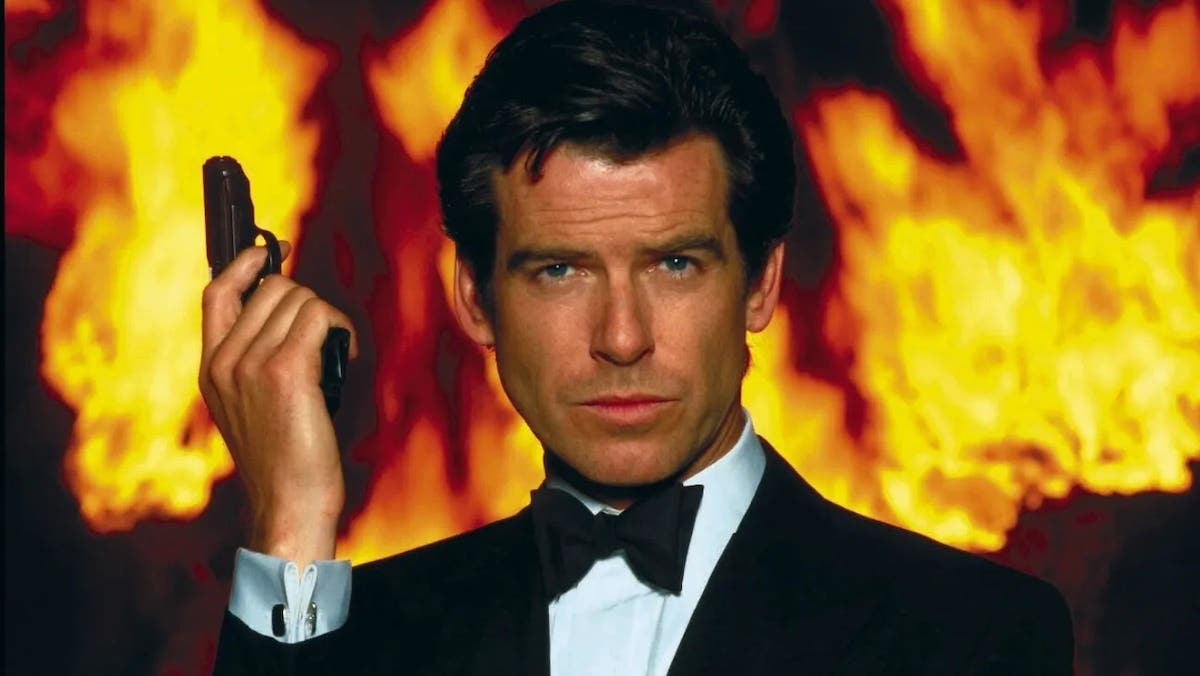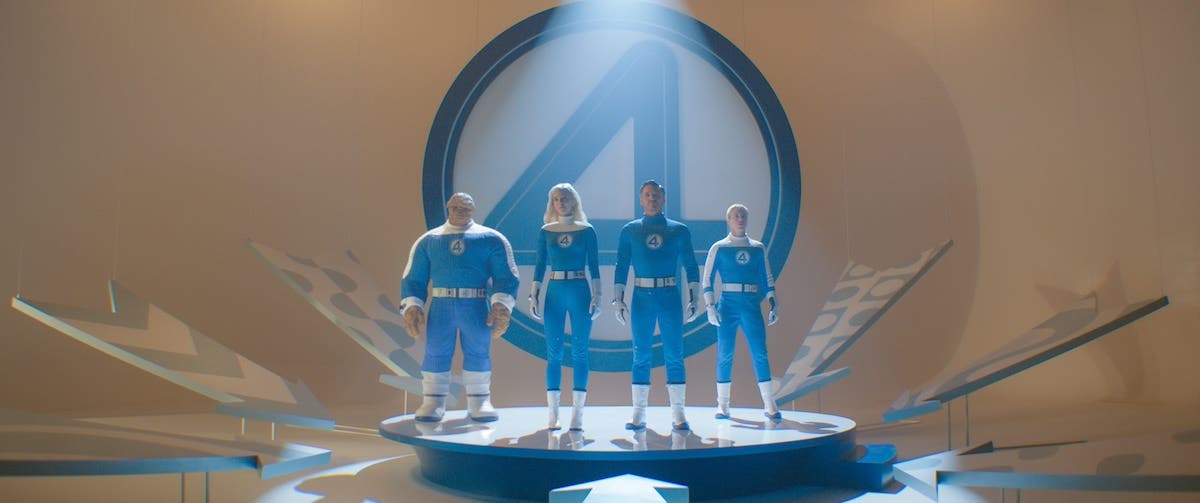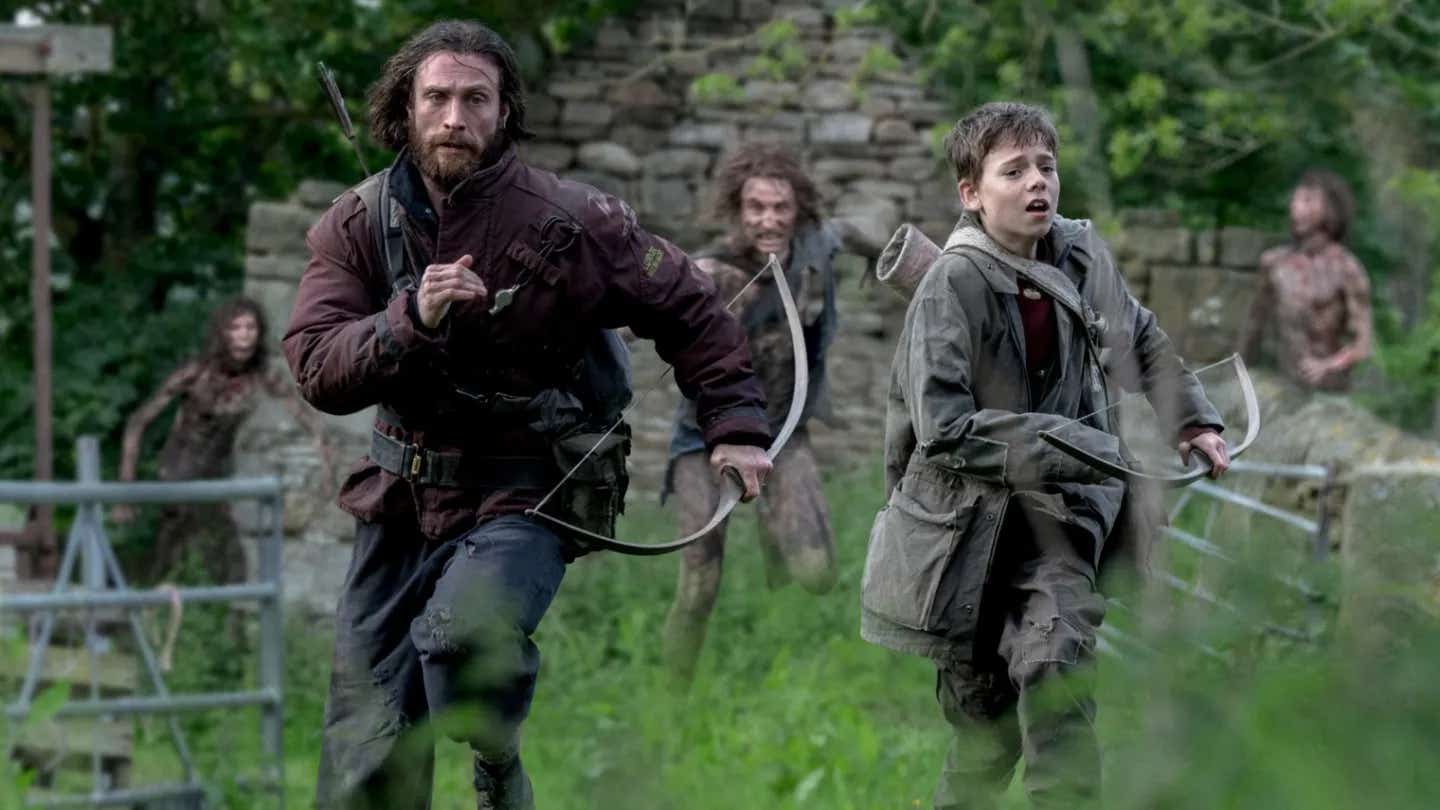‘Bugonia’ Sticking the Landing, and A Lesson For Screenwriters
The script through the film is beautifully rendered, sharpening the tension and releasing it between awkward laughs and increasing the stakes.
As we’re talking about the ending and sticking the landing, there will naturally be spoilers for the ending of Bugonia in this article, proceed at your own risk.
Bugonia is the latest movie from filmmaker Yorgos Lanthimos, with a screenplay from Will Tracy, based on a Korean film written by Jang Joon-hwan. It tells the tale of two internet conspiracy theorists (Jesse Plemons and Aidan Delbis) who believe that the wealthy and influential CEO of a powerful corporation (Emma Stone) fully believing that she is a space alien from the Andromeda galaxy, intent on destroying the Earth. To that end, they kidnap and torture her, in the hopes of forcing her to bring them to her mother ship and negotiate with the grand Emperor of the Andromedan Empire to put a stop to those plans.
Like the last film by Lanthimos, Poor Things, the film is fantastical and bonkers in its execution. There’s something to be said for films and screenplays that lean into the fantastical, which is something we don’t get enough these days. Too often, we hew too much to the realistic and forget that part of the wonder of cinema is that we can accomplish anything. We don’t have to be constrained to reality. We can get wonderful films that range from The Wizard of Oz to The Substance.
That doesn’t mean that our films can’t say anything, and when I first left the theater, I was angry, because I thought this film had undercut everything I thought it was trying to say by the inclusion of its ending. It had so carefully laid out a brilliant premise through allegory about something we desperately needed to see on cinema screens. Khaled Hosseini said, “Writing fiction is the act of weaving a series of lies to arrive at a greater truth,” and Bugonia accomplished this in spades through the portrayal of Teddy and Don, the conspiracy-addled cousins who could be easy stand-ins for QAnon followers and MAGA supporters. By making them believe in something so outside the partisan boundaries of the United States, it’s much easier for audiences of all stripes to nudge each other and go, “These guys have completely lost the thread.”
They chemically castrate themselves and are easily convinced to inject their dying relatives with regimens of antifreeze—easy correlations to ivermectin and anti-vaxxers, but taken to the nth degree. Their reality is so obviously warped and dangerous and they’re hurting people, and they’re so bad, we’re forced to root for the CEO of a major corporation who is objectively awful as she wanders through the halls of her business, telling people that they should knock off early at 5:30pm unless they have more work to do, in which case they should stay, maybe, it’s their call. It’s a microcosm of the world we’re living in.
The script through the film is beautifully rendered, sharpening the tension and releasing it between awkward laughs and increasing the stakes. We laugh at the absurdity and are terrified by the violence. If we couldn’t laugh we’d cry because we recognize the absurdity of the situation we’re in as we look around and we can’t get half of the voting public to understand objective reality as they shout in our faces about their right to die by drinking raw milk and to kill all of our children by bringing back dead diseases like the measles, small pox, and polio.
As the film progresses and things spiral out of control as we get closer toward the lunar eclipse, which Teddy is convinced will be when the Andromedans will be able to make contact with his captive, we’re given useful signposting toward an inevitable ending. The screenplay gives us a clear timetable to count toward, that adds tension to the stakes. It also gives us useful imagery in the symbolism, as every instance of the countdown is paired with an image of the flat Earth, tying Teddy’s conspiracy to another absurd and debunked one we all know has traction in our world for reasons beyond any of us.
And finally we reach the end. Emma Stone’s CEO convinces Teddy to bring her to her office, where her calculator is her interface for a teleportation device. All he has to do is step into a closet where he’s strapped explosives onto his person, just in case the Emperor will not negotiate with him, and she’ll beam him to space.
Naturally, he’s not beamed, instead, he explodes in the closet.
This works as a great relief of tension and an awkwardly funny moment and then the CEO is hauled out of there in an ambulance.
We’re relieved because the ordeal is over and the major narrative question of the film has been answered. She’s rescued and Teddy is dead and we can stop worrying. This would be a wholly satisfying ending, providing us much to chew on, and would have stuck the landing just fine.
But…
(There’s always a but.)
There’s more. And this is where we can debate about whether or not Bugonia sticks the landing, and I’ve been back and forth about whether or not the screenplay succeeds on this point since I’ve seen it, and I think on paper it does, in practice it might not, though, and that’s really where it will live or die.
As Fuller, the CEO, is lying in the ambulance, half conscious and strapped down, she begins to tear off her breathing mask and bandages and runs at a sprint back to the office building. She dashes back up the stairs and into her office, retrieves her calculator, steps into the gory mess left behind by Teddy’s improvised explosive, and presses enter on her calculator.
And suddenly she’s transported to an Andromedan mother ship.
Speaking an alien language with the Emperor and their council, they confirm every one of Teddy’s suspicions and sentence Earth to death. The alien version of Emma Stone pops a balloon over a facsimile of Earth and all human life ceases to live.
But the bees that opened the first shots of the film continue to do their dance, unbothered by the whims of humans. They spread their pollen. They make their honey. The world continues to spin, unconcerned with the petty drama of humanity.
Now, my initial instinct was to reject this ending, feeling it had betrayed every theme the film had worked to build at that point. It had just given a brilliant allegory to those who believe the most absurd things and harm other people as they believe it, and then told them, “Hey, you were right all along. You should keep doing those things.”
And then as I talked about the ending and chewed on it more, there were deeper layers there. For one, by book ending the film with nature and the bees and making them an integral, although almost hidden allegory through the film, their importance is magnified. Humans place an outsized importance on their influence on the course of the Earth and long after we’re gone, the Earth will continue to spin, the film seems to say. Also, there’s a valid read that the scenes aboard the Andromedan ship are a fever dream of Fuller as she’s in the ambulance as she tries to make sense of her ordeal. Another view of the ending is that it Teddy was correct in that his conspiracy was correct, but by resorting to violence, it was his actions that doomed humanity, and treating her with kindness, deference, or even just leaving her well enough alone would have yielded a more human outcome.
There’s something else, too.
Lanthimos and Tracy almost seem to be scolding us as the audience to say, “You thought you had all this figured out. You thought you were on the right side of this one, but guess what. You laughed at these two, but they were right the whole time, why didn’t you have empathy for them?”
And it goes back to a point where Fuller explains that they’re mentally ill and she genuinely offers them help. And they refuse to accept it. They’re too rigid in their thinking. By completely rejecting the ending, would we be guilty of that same refusal? Would we be stamping our feet in the same way and saying, “No! I’m too rigid in my thinking?”
It holds us to account and says, “Do better.”
Ultimately, it’s that finger wagging that I think works conceptually on paper, but is why I think it will fail with most audiences. A screenplay and film is ultimately a dialogue between audience and creator. Without the audience receiving the message that the writer and filmmaker provides, there is no communication of the art. And if your landing pushes the audience so far away from your intention that they won’t debate about it or consider the different ambiguities presented, they aren’t going to engage with it intellectually enough to derive any meaning out of it.
Personally, I love films with challenging endings that aren’t spelled out for me. Those are the strongest in my mind. Whether that’s not spelling out what it might mean that Michael Corleone shuts that door at the end of The Godfather, or what the faltering top at the end of Inception really says, or if Childs and MacReady are both human or neither at the end of The Thing. It doesn’t matter, we all have our own personal understandings every time we revisit the film.
I think Bugonia, for those of us who appreciate that there is ambiguity there, and understand that we should not take the ending at face value will find something to reinterpret upon further viewings. As a screenwriter, I wonder if making it appear so cut and dry on first blush was the right choice for some audiences.
In the meantime, I’m going to go watch the film again, because I, for one, thought it was terrific.
Bugonia is now in Theaters with a wide release on October 31.
Bryan Young is an award-winning filmmaker, journalist, and author. He's written and produced documentary and narrative feature films and has published multiple novels and a non-fiction book. He's written for Huffington Post, Syfy, /Film, and others. He's also done work in the Star Wars and Robotech universes. You can reach him on Twitter @Swankmotron or by visiting his website: swankmotron.com.







